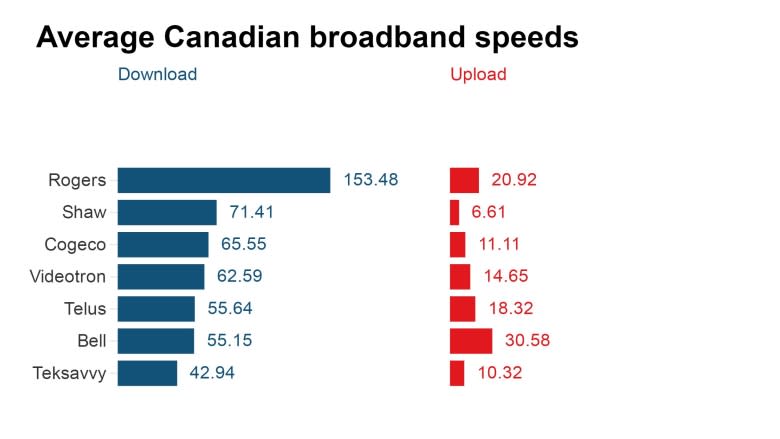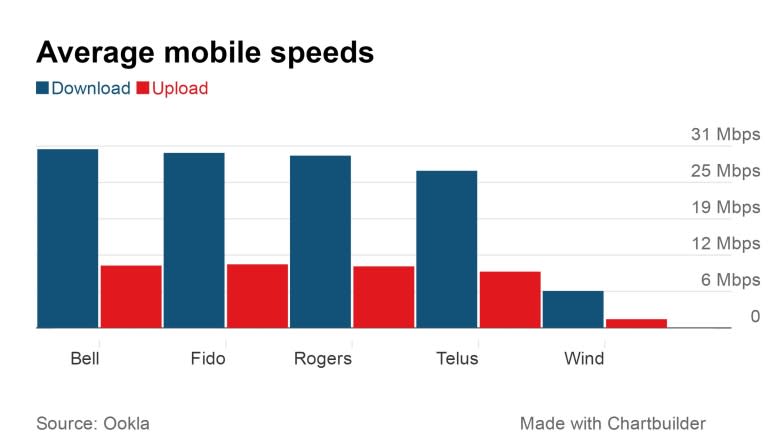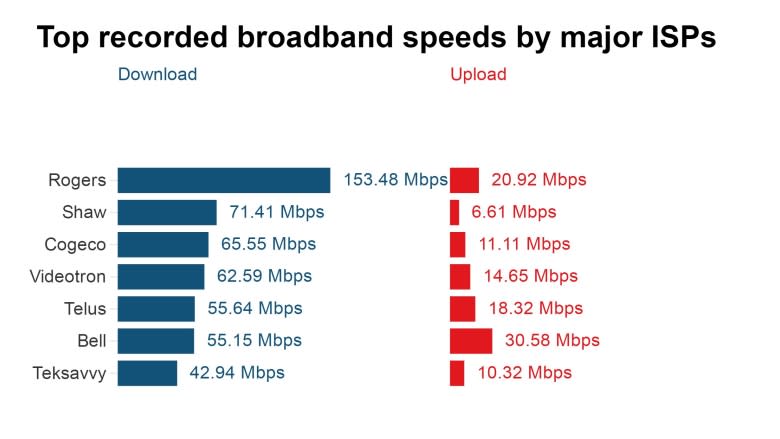Canadian broadband and mobile internet speeds getting much faster, Ookla says
The average Canadian is getting much faster internet speeds than they were a year ago, new numbers suggested Wednesday.
According to Ookla, a web service that internet users ping eight million times a day to check their download speeds, the average Canadian was getting 44 megabits per second (Mbps) in June 2016. That's an increase of 40 per cent from a year ago. While an impressive growth, that still puts Canada 28th in the world. Luxembourg has the fastest speeds in the world, with 358 Mbps.
Upload speeds have seen a similar lift of 33 per cent, to 11.04 Mbps, in the past year.
On the mobile side, speeds are also picking up, according to Ookla's data. The average Canadian mobile user saw download speeds of 25.21 Mbps in June, up 21 since last year. Upload speeds were clocked at an average of 8.62 Mbps, up 18 per cent. Still, that lags well behind Singapore, which has download speeds of 42.6 Mbps and upload speeds of 16.8 Mbps.
While an encouraging trend, Ookla admits its numbers may not be in keeping with what all Canadians are experiencing.
"The results are generally weighted by larger urban metropolitan areas, where a majority of Canadians live, which coincides with carrier deployment of LTE Advanced since 2014," the company said.
More competition
In some cases, there are small regional players that may offer even higher speeds since they focus on building up networks that target niche markets. "Their numbers are skewed because they service a specific area with very high speeds," Ookla said.
While Canadians have justifiable complaints about many aspects of the country's telecom offerings, the overall trend for broadband and mobile internet shows download speeds are improving rapidly.
While the Big Three — Rogers, Bell and Telus — still dominate the market, there's been an explosion of regional players keeping them on their toes and compelling them to offer faster speeds, if not cheaper prices.
"The first two quarters of 2016 bode well for the Canadian consumer," Ookla said. "Incremental change is the name of the game, as speeds continue to tick upward. The emerging trend of new, boutique fibre companies is undoubtedly fantastic for consumers, as the behemoths of Canadian telecom continue to boost speeds to match increasing competition and demand."

 Yahoo Finance
Yahoo Finance 



